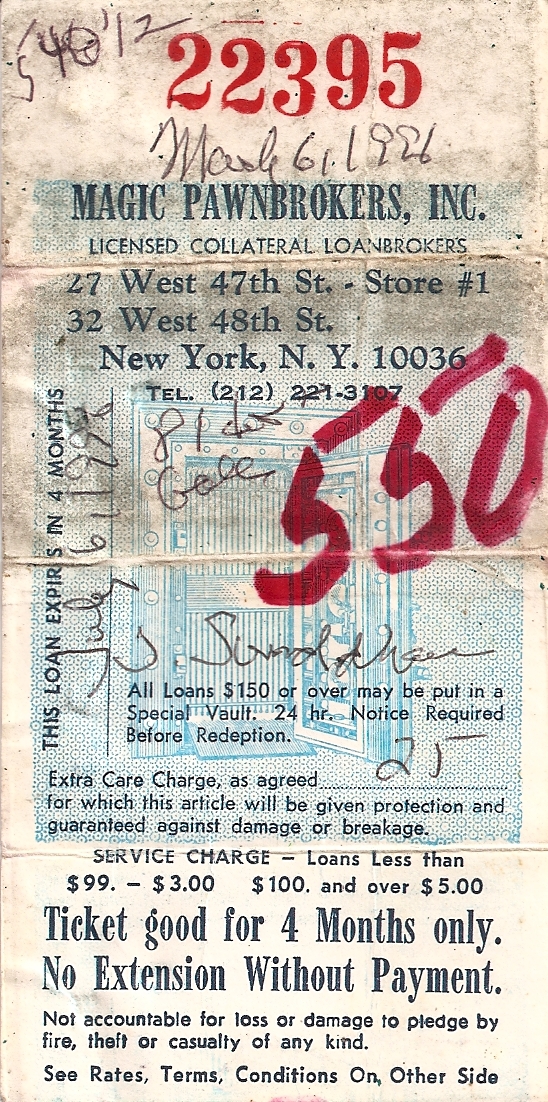You’ve seen those TV advertisements for the “credit card” mafia front called Capital One. “What’s in your wallet?” they ask. Well, I used to have a Capital One so-called “credit card”1 in there , but I cancelled the account last year –I’m still paying down the balance– so I have nothing with their name on it in my wallet to remind me that I’m still their bonded serf. What I do have in my wallet is this:
 .
.
It’s the pawn ticket from when my wife pawned her jewelry, including her wedding ring & family heirlooms, for cash to keep us going when we were homeless in 1996 when I was writing Acts of the Apostles.



